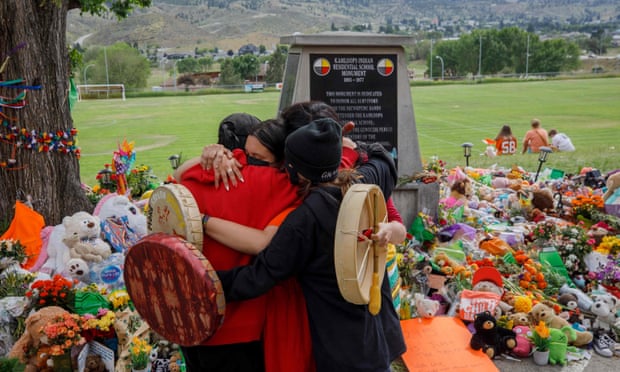by NICK ESTES

A 1978 law tried to remedy adoption practices created to forcibly assimilate Native children. Now conservative lawyers are arguing that the law constitutes ‘reverse racism’
George Armstrong Custer of the Seventh Cavalry was infamous during the 19th-century Indian wars for riding into the enemy camp, holding Native women, children and elders hostage at gunpoint, and forcing the surrender of the tribe. He systematically attacked and captured civilians to crush Indigenous resistance, which is partly how he defeated the Cheyenne at the Battle of Washita River in 1868. Cheyenne, Lakota and Arapaho warriors later killed Custer as he fled after trying the same hostage-taking ploy at the Battle of Greasy Grass in 1876.
Attacking non-combatants, especially children, to enable the conquest of land by destroying the family, and therefore Indigenous nations, wasn’t unique to Custer or the US military.
There’s a reason why “forcibly transferring children” from one group to another is an international legal definition of genocide. Taking children has been one strategy for terrorizing Native families for centuries, from the mass removal of Native children from their communities into boarding schools to their widespread adoption and fostering out to mostly white families. It’s what led to the passage of the Indian Child Welfare Act (ICWA) of 1978, touchstone legislation that aimed to reverse more than a century of state-sponsored family separation.
Yet the spirit of Custer still haunts the fate of Native children even today. The fight has shifted from battlefield to courtroom.
In the new season of the This Land podcast premiering this Monday, Cherokee journalist Rebecca Nagle shows how corporate lawyers and rightwing thinktanks like the Cato Institute have teamed up with non-Native families to not only dismantle the ICWA but the entire legal structure protecting Native rights. And so far, they’ve made small but important victories.
Last April, an appeals court upheld parts of a federal district court decision, in a case called Brackeen v Haaland, that found parts of ICWA “unconstitutional”. The non-Indian plaintiffs contend that federal protections to keep Native children with Native families constitute illegal racial discrimination, and that ICWA’s federal standards “commandeer” state courts and agencies for a federal agenda. Put plainly, the mostly white families wanting to foster and adopt Native children are claiming reverse racism and arguing that federal overreach is trampling states’ rights – two codewords frequently associated with dismantling anti-racist policies.
According to this upside-down logic, ICWA – monumental legislation consciously designed to undo genocidal, racist policy – is racist because it prevents mostly non-Indians from adopting Native children. The thinking is as old as the “civilizing” mission of colonialism – saving brown children from brown parents.
The Guardian for more
